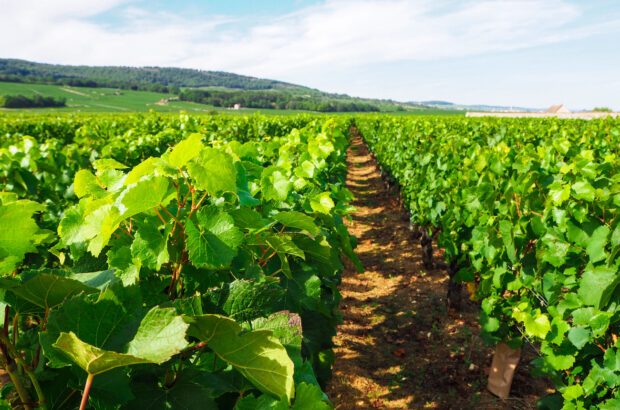To Kalon, a vineyard regarded as California’s crown jewel thanks to its enduring renown for producing world-class, top-scoring Cabernet Sauvignon, has secured its legendary status with organic certification.
Blue-chip producers such as Robert Mondavi, Schrader Cellars, To Kalon Vineyard Company and Cliff Lede have all cemented their reputations on To Kalon fruit. But as iconic as they and this vineyard are, there is always room for improvement.
The past three years have seen rigorous overhauls within To Kalon in pursuit of the ambitious California Certified Organic Farmers (CCOF) organic certification.
‘While the To Kalon vineyard has been farmed sustainably for many years, the challenge was in the commitment to a certified organic programme,’ says Blake Wood, director of vineyard operations, To Kalon Vineyard, Constellation Brands. ‘There is a mindset shift there. The margin for error is very narrow. It’s been fun to watch our team respond to this challenge.’
The To Kalon legacy
To Kalon vineyard, in Napa’s Oakville appellation and planted with just over 80% Cabernet Sauvignon, is primarily owned by Constellation Brands. Today 177ha are managed by the Robert Mondavi Winery with an additional 94ha held by University of California Davis and Beckstoffer Vineyards, among others.
To date, 134ha of To Kalon’s vines have received the CCOF certification. Younger vines await certification while several established blocks act as buffer zones where the vineyard abuts conventionally farmed properties. Organic certification on this scale marks a major milestone for both To Kalon and Napa Valley.
‘This is an important moment for the industry,’ says Thomas Rivers Brown, winemaker at Schrader Cellars. ‘When such an iconic, high-profile vineyard like To Kalon makes the commitment to organic farming, it demonstrates a belief that it truly does impact quality for the better. Through organic practices, we’re making better wine by helping to balance yields, increase concentration and manage canopies with minimal intervention.’
The challenges of converting to organic viticulture
Transitioning a vineyard of To Kalon’s size, scope and reputation from conventional to organic farming and achieve certification is an immense undertaking. It requires detailed adherence to stringent standards on vineyard applications, renewable resources, soil and water conservation. Everything needs documenting and milestones checked – all part of Constellation’s future-focused sustainability plan.
‘The main challenge with farming organically is that there is no margin for error,’ says Sally Johnson Blum, director of winemaking at Robert Mondavi Winery. ‘In a difficult vintage, our options to adjust are extremely limited. Our vineyard team has to be several steps ahead of Mother Nature at all times. It’s a big challenge, for sure. Was it worth it? Absolutely, 100%.’
Blum adds: ‘Weed control is a major challenge in organic viticulture. Mechanical weed control is one of the best options, but the additional tractor passes can present a carbon emissions challenge. To address this, we have purchased the first six fully electric, driver-optional smart tractors in the wine industry, made by Monarch Tractor, a company co-founded by Carlo Mondavi.’
The first organic To Kalon vintage
The first certified organic grapes from the To Kalon vineyard will be harvested in this year’s 2023 vintage. But will the wines echo the changes in the vineyard? Andy Erickson, winemaker at To Kalon Vineyard Company, thinks so.
‘Organic farming in To Kalon Vineyard has always been very important to me,’ Erikson says. ‘We live and work among the vines, so it’s good to know that we’re farming the right way. I’m so happy that we’ve reached this milestone. The vineyard already feels so alive and I know that will be reflected in the wines.’







